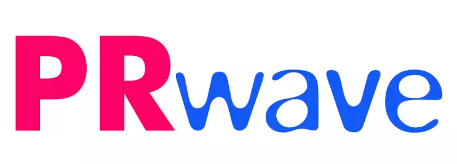By AllBusiness.com*
It has become increasingly harder to promote a business using email. SPAM clogs up in-boxes and most people are quick to delete the deluge of mail they receive without even reading it.
Nonetheless, email marketing, if done correctly, can be an inexpensive and quick way of reaching a very large audience. The key is to get people to WANT to receive your mailings. To do this, you need to do permission mailing, which means having people either sign up on your web site for such mailings or provide their email addresses when they purchase something from your company. In this way, you can collect email addresses without buying a list that may be created and/or sold illegally.
{viewonly=registered,special}
Emailing advertisements (with permission to have the recipients email address) can still become redundant and the recipient will likely ask to be taken off the mailing list unless you:
# Offer new discounted products or services regularly
# Provide very targeted mailings
# Offer some content
Even two or three sentences of original content can provide a reason to read your email. It can also support the advertising that otherwise may be deleted. Short bits of information, such as five tips for a healthy lawn from a lawn care company or dressing for success from a clothing retailer are ways to keep your audience reading your emails. Establishing your own newsletter (which may only be a few paragraphs) can draw the attention of your readers.
When emailing customers, you also need:
Related Articles
* Top 10 Email Marketing Mistakes
* The 10 Key Steps to Successfully Market Your Business Online
# A catchy headline
# A recognizable company name in the "from" box so they’ll know it’s from your business
# A simple one-click manner in which they can get more information on specific products or services
# A means of reaching customer service
Since you may only have one second to capture the reader before he or she hits delete, it’s to your benefit to make sure something interesting shows up in the window that displays part of the email prior to the reader actually opening it. This window can literally provide you a "window of opportunity" to grab their attention. Make this about "them." Unlike a press release, which tells the media what your business is up to, email marketing needs to focus on benefits to the customer. Once you’ve got them reading, you can put as much as you’d like about your company farther down the page. They can elect to read it or not. Nonetheless, the farther down the reader scrolls, the more advertising and marketing information he or she will have absorbed.
A few email marketing rules of thumb:
# Make sure everyone on the list has agreed to be there — don’t add names
# Reassure readers that their information will not generally be shared
# Give readers an opportunity to opt off of the list
# Keep information concise, to the point and focused on their needs
# Don’t blitz — emailing more than once or perhaps twice a week can be annoying
# Provide a choice of HTML or TEXT version
Landing pages are also important. Readers should be able to get more information by clicking on various places on the initial marketing email or newsletter. Don’t send them to a home page and make them search for the specific information that brought them there. For example, on Amazon.com if you click on a specific book you’ll get a page with details and reviews of that book and suggestions of similar books. That landing page provides information including pricing or purchasing and then leads to a sales page or shopping cart. Your promotional emails should do the same thing and also give the reader an opportunity to go to your home page.
A new company that is not conducting business directly over the Internet may want to take advantage of the interactivity of the Internet by providing readers with something to do, such as a quiz, questionnaire, survey or short article. This puts your name in front of the reader while giving them a chance to interact. It is also a way of monitoring how many people are visiting your site and staying for a few minutes.
*AllBusiness.com provides resources to help small and growing businesses start, manage, finance and expand their business. The site contains Forms & Agreements, Business Guides, Business Directories, thousands of Articles, Expert Advice, and Business Blogs. Material copyrighted by AllBusiness.com.{/viewonly}
{mosloadposition user10}




